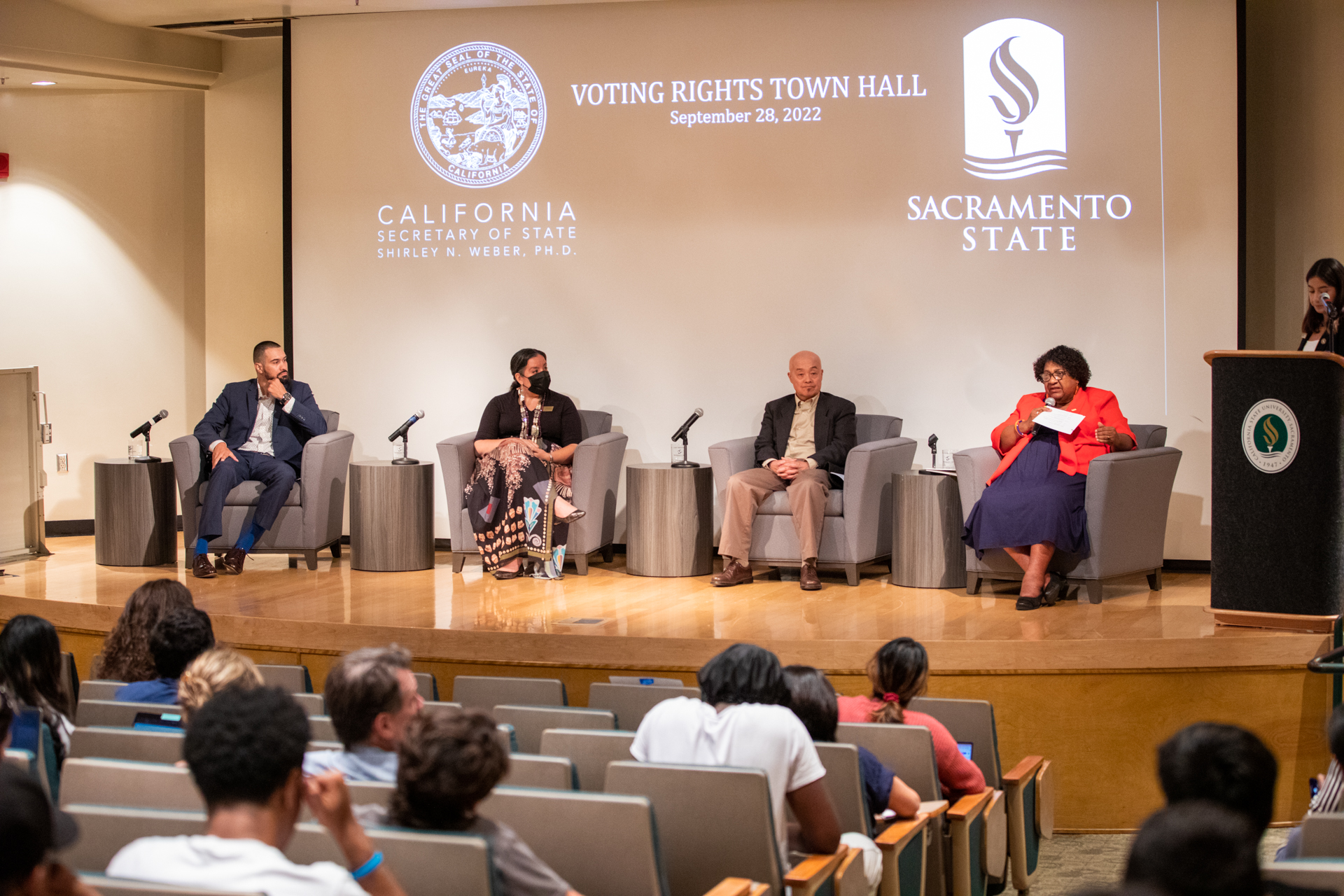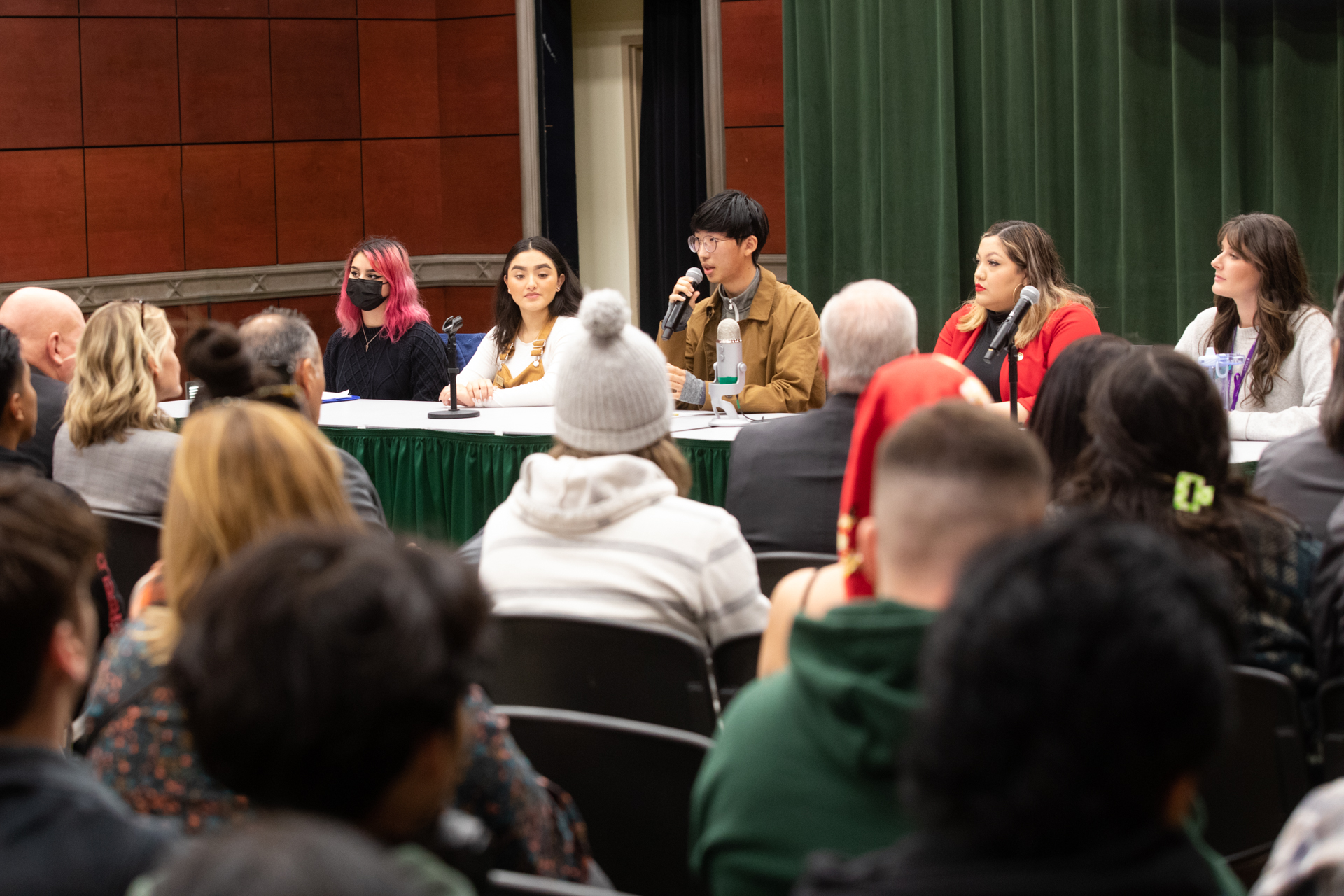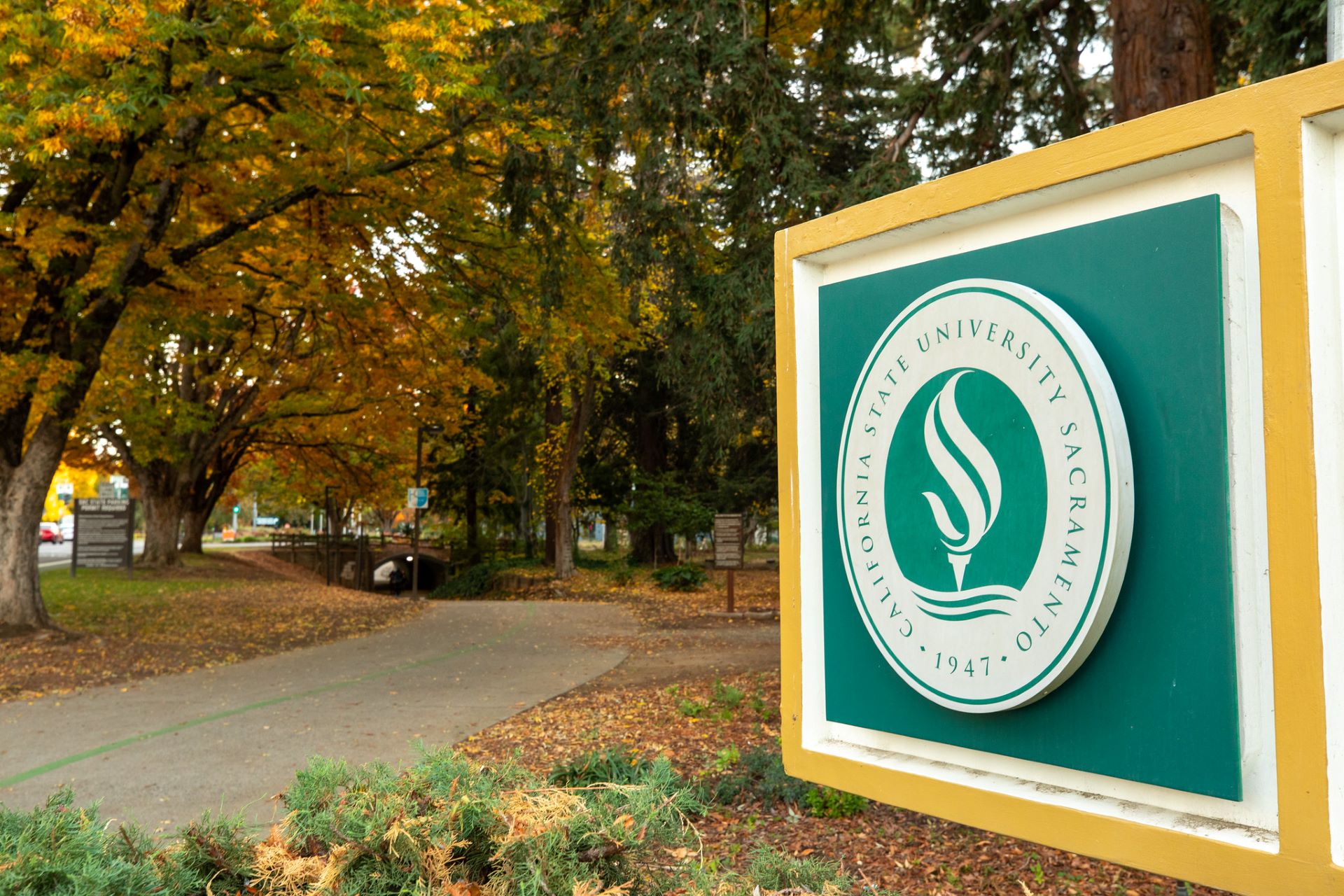Story Content
At Sac State forum, California secretary of state says reparations are ‘about expanding opportunity for everyone’
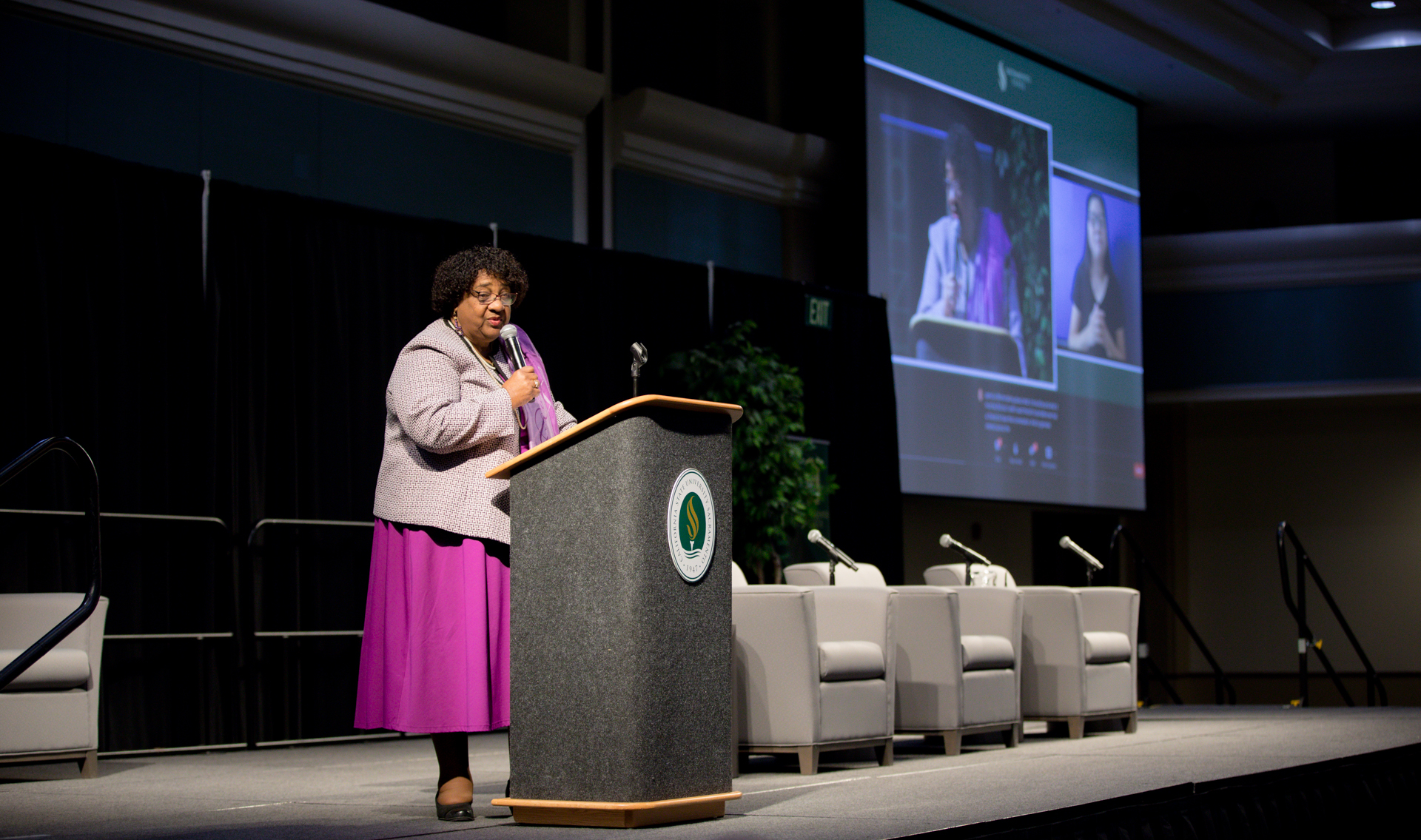
February 08, 2023
California Secretary of State Shirley Weber told a Sacramento State audience this week that the state is making progress toward a reparations plan to correct injustices that for generations have harmed Black residents.
A state task force is developing a plan that will “create an opportunity for California to lead the nation” in acknowledging harms inflicted upon Black Americans, from the dark days of slavery to ongoing discriminatory practices, Weber said Feb. 8 in the University Union Ballroom.
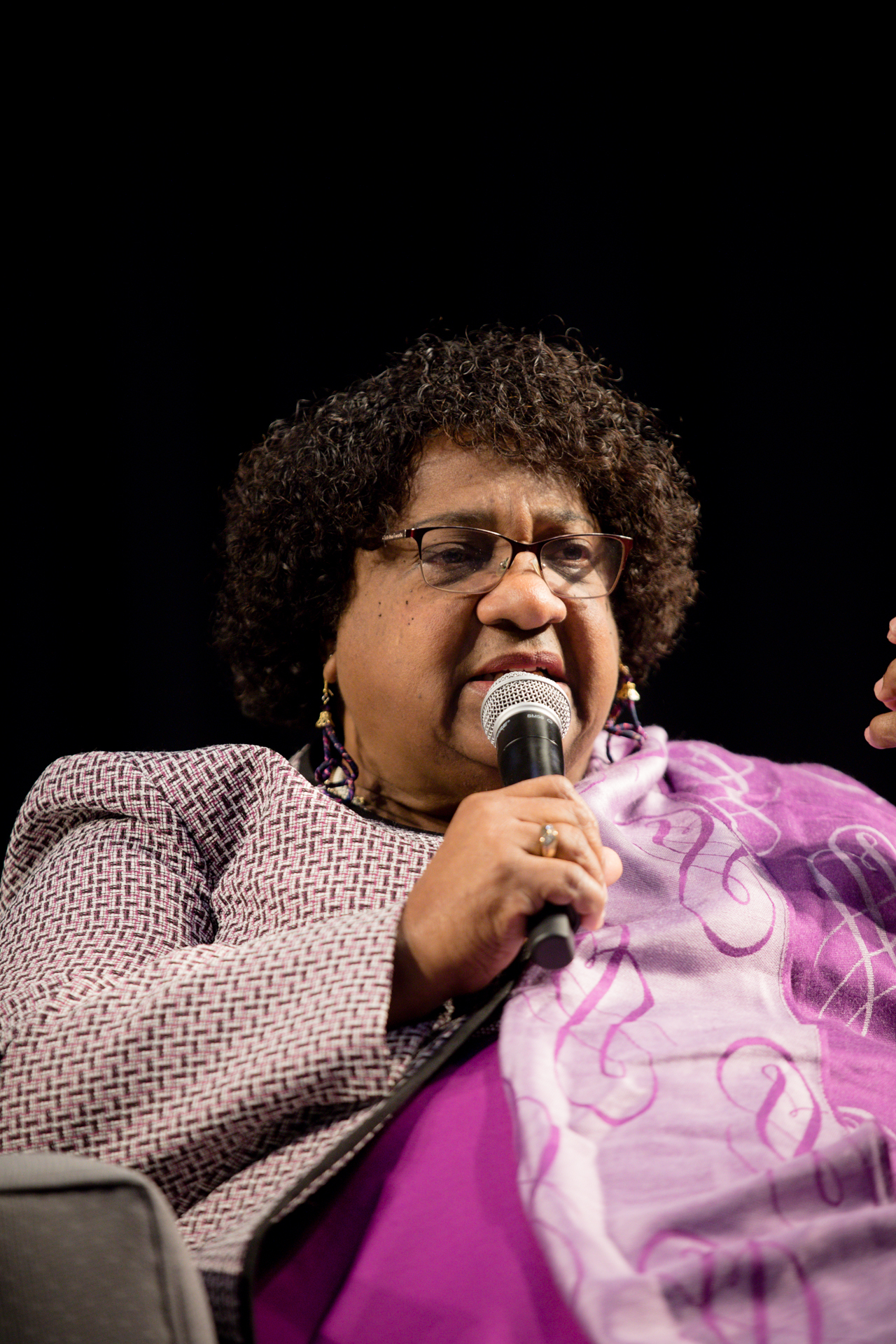
Weber, a former state Assemblymember, authored the bill that created the task force, which is scheduled to report its reparations proposals to the state Legislature in July. A newly created agency would process claims for reparations for harms such as housing, employment, and health discrimination against Black residents.
“Reparations will help change our system to make it more equitable,” Weber said.
Weber’s appearance was part of the University’s Green & Gold Speaker Series, which this year is focused on topics surrounding fairness and inclusion, equal access to resources and opportunity, and expanding human rights. The speech coincides with Sac State’s ongoing implementation of its Antiracism and Inclusive Campus Plan.
Following her speech, a second audience took part in a community forum addressing police violence against unarmed people of color. Both gatherings were led by Sac State’s Division of Inclusive Excellence.
The forum featured Sac State students, faculty members, and others who shared their feelings about recent police violence, including the beating death last month of Sacramento native Tyre Nichols at the hands of Memphis officers. Speakers became emotional at times as they discussed their interactions with police and their fears for loved ones.
“This issue is, to me, all of our issue,” said Mia Settles-Tidwell, Sac State’s vice president for Inclusive Excellence. Tyre Nichols “could have been our brother, our son.”
Sac State Police Chief Chet Madison said Memphis police committed “unspeakable acts of grave cruelty and violence” against Nichols. Their actions “angered me,” he said, and have added to the continuing tension between people of color and law enforcement officers.
The chief, who is Black, said he has been pulled over by police “multiple times” simply because of the color of his skin.
Police discrimination is one of the many ways that African Americans are at a disadvantage in American society, said Weber. Black Americans, she said, have had fewer opportunities to succeed and prosper because of racial bias.
Even though California “is not known as a slave state, history shows patterns of exclusion and racism,” Weber said.
Slaves were transported to California where they “worked for free,” she said. Many of their descendants “didn’t have the opportunity to receive education, get meaningful work, buy property, and accumulate wealth.” Mass incarceration of young Black men is well documented, she added.
Weber acknowledged that a plan to repair some of those wrongs is controversial.
“But this is not about taking something away from other people,” she said. “It’s about expanding opportunity for everyone.”
“People have become wealthy because of someone else’s pain,” she said of detractors. “It’s about time that we really grapple with that issue.”
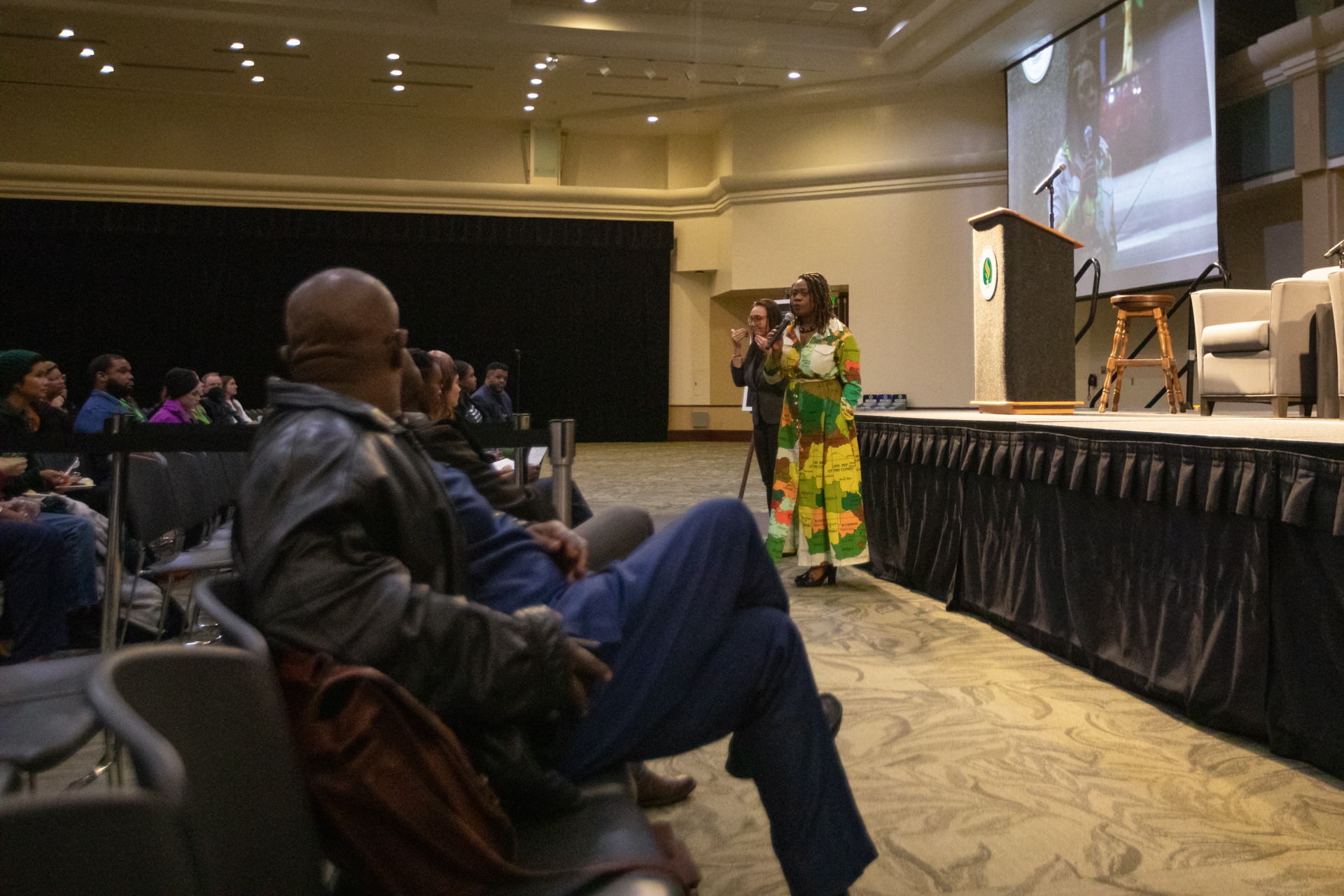
Media Resources
Faculty/Staff Resources
Looking for a Faculty Expert?
Contact University Communications
(916) 217-8366
communications@csus.edu
